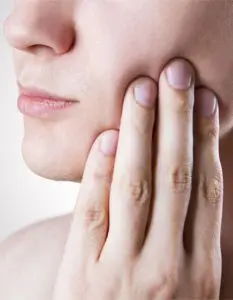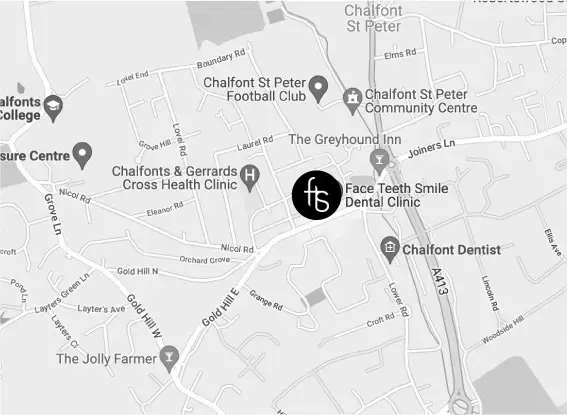General
Don’t Ignore These Oral Health Warning Signs
Maintaining good oral health is crucial for overall well-being. Proper dental care and hygiene not only contribute to a beautiful smile but also help prevent various oral health problems. Ignoring warning signs of potential issues can have serious consequences for your oral health in the long run.
We’ve put together this guide for protecting your teeth and gums. It’s designed to showcase the importance of oral health and why it is vital not to overlook any warning signs that could indicate underlying problems.
Warning Sign #1: Persistent Toothache or Sensitivity
Persistent toothache or sensitivity can be a sign that there may be an underlying dental issue that needs attention. Toothache can range from mild discomfort to severe pain that affects your daily activities and may present as a sharp pain or constant throbbing sensation.
Tooth sensitivity, on the other hand, refers to the sharp, temporary discomfort experienced when your teeth come into contact with hot or cold foods and beverages, sweet or acidic substances, or even when you breathe in cold air.
Causes of toothache and sensitivity
Causes of toothache and sensitivity can vary but may include:
- Dental decay: Cavities caused by bacteria eroding the enamel and inner dentin layers of your teeth can lead to toothache and sensitivity.
- Gum disease: Inflammation of the gums caused by bacterial infection can cause gum recession, exposing the sensitive root surfaces of your teeth.
- Tooth fractures: Cracked or broken teeth due to trauma or excessive biting forces can result in persistent pain and heightened sensitivity.
- Dental abscess: A pocket of pus caused by a bacterial infection at the root tip of a tooth may lead to severe toothache accompanied by swelling and fever.
- Teeth grinding (bruxism): Excessive clenching or grinding of your teeth during sleep or when stressed can wear down the enamel, leading to increased tooth sensitivity.
Warning Sign #2: Bleeding Gums or Gum Disease
If you’ve noticed bleeding gums while brushing or flossing, it could be a sign of gum disease. Gum disease, also known as gingivitis or periodontitis, is an infection that affects the tissues surrounding and supporting your teeth.
Causes of bleeding gums and gum disease
When bacteria build up on your teeth and gums, they can cause inflammation and irritation, leading to bleeding gums. If left untreated, gum disease can progress to more severe stages and even result in tooth loss.
How to prevent gum disease and maintain good oral health
- Brush your teeth thoroughly twice a day with a soft-bristled toothbrush
- Floss daily to remove plaque from between your teeth
- Use an antimicrobial mouthwash to reduce bacteria in your mouth
- Eat a balanced diet rich in fruits and vegetables while limiting sugary snacks
- Avoid tobacco products as they can contribute to gum disease
If you’re experiencing persistent bleeding gums or suspect gum disease, it’s important to consult with a dentist who can provide proper diagnosis and treatment options tailored to your specific needs.
Warning Sign #3: Bad Breath That Won’t Go Away
Persistent bad breath, also known as halitosis, can be embarrassing and affect your daily interactions with others. While occasional bad breath is normal after consuming certain foods or due to poor oral hygiene habits, chronic halitosis may indicate an underlying issue that requires attention.
Causes of bad breath
- Poor oral hygiene: Inadequate brushing and flossing allow bacteria to accumulate on the tongue, teeth and gums.
- Dry mouth: Saliva helps cleanse the mouth by washing away food particles; decreased saliva production can lead to bad breath.
- Oral infections: Infections such as gum disease or cavities can contribute to persistent bad breath.
- Certain foods: Strong-smelling foods like garlic or onions can temporarily cause bad breath.
- Medical conditions: Certain medical conditions like sinus infections, respiratory tract infections or gastrointestinal issues can result in chronic halitosis.
How to combat bad breath
- Brush your teeth at least twice a day for two minutes each time, including your tongue.
- Floss daily to remove food particles and plaque from between your teeth.
- Stay hydrated to help prevent dry mouth; drink plenty of water throughout the day.
- Use sugar-free chewing gum or mints to stimulate saliva production and mask odours temporarily.
Warning Sign #4: Loose or Shifting Teeth
There are several potential causes of loose teeth, including periodontal disease, trauma to the mouth or jaw, tooth decay, and even hormonal changes in some cases. It is essential to address this issue promptly to prevent further damage and potential tooth loss.
If you notice that your teeth feel loose or are shifting out of place, schedule an appointment with your dentist as soon as possible. They will be able to evaluate the situation and determine the underlying cause of your loose teeth.
Treatment options for loose teeth will depend on the specific cause identified by your dentist. This may include deep cleaning procedures like scaling and root planing for gum disease, restorative treatments such as dental crowns or bridges for damaged teeth, or orthodontic interventions like braces if misalignment is contributing to the problem.
Warning Sign #5: Sores or Lesions in the Mouth
The presence of sores or lesions in the mouth can be uncomfortable and may indicate various oral health conditions. Common types of mouth sores include canker sores (small ulcers with a white or yellowish appearance), cold sores (caused by herpes simplex virus), and oral thrush (a fungal infection).
While most mouth sores resolve on their own within a couple of weeks, persistent lesions that do not heal should never be ignored as they could potentially be a sign of a more serious condition such as oral cancer.
If you notice any unusual changes in your mouth, such as persistent sores that don’t heal within two weeks, it’s crucial to seek a professional dental evaluation.
Your dentist will conduct an examination and review your medical history to determine the cause of these lesions accurately. Depending on their findings, they may recommend additional tests such as biopsies for suspicious areas.
Early detection is key when it comes to oral cancer, so don’t hesitate to consult your dentist if you notice any concerning mouth sores or lesions. Remember, regular dental check-ups are essential for maintaining good oral health and detecting potential issues early on.
When to see a dentist
If you experience persistent tooth pain or sensitivity, bleeding gums, persistent bad breath, or any other concerning symptoms related to your oral health, don’t hesitate to make an appointment with a dentist right away.
By taking action through consistent oral care routines at home and seeking professional dental care regularly when needed, you can significantly reduce the risk of developing oral health problems. Remember that prevention is key to maintaining optimal oral health throughout your life.
Contact Face Teeth Smile
If you have any concerns about your oral health, don’t hesitate to get in touch. You can book a consultation online, call us on +44 (0) 020 4525 9665 or email info@faceteethsmile.com.

